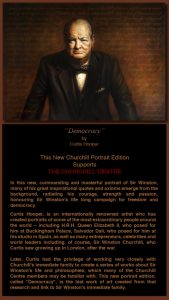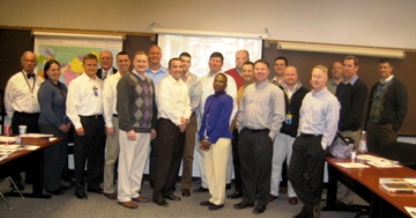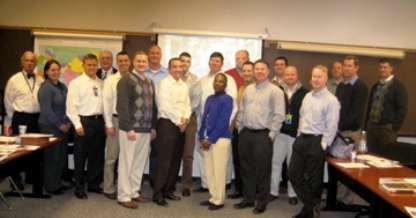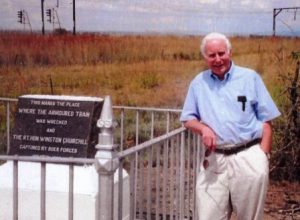
Bulletin #33 - Mar 2011
Dr Maurer Teaches “Winston Churchill: Statesman and War Leader” at the Naval War College

March 7, 2011
By Suzanne Sigman
Professor John H. Maurer serves as the Chair of the Strategy and Policy Department at the Naval War College in Newport, Rhode Island and is an academic adviser to The Churchill Centre. Since 1995 he has offered a popular elective course—”Winston Churchill: Statesman and War Leader”—during the College’s winter term. Examining Churchill as a strategic leader provides an opportunity to explore a wide range of topics in strategy and policy: civil-military relations, transformation, the politics of war in democracies, the strategic international environment, the effectiv eness of different instruments of war, and ethics in wartime.
eness of different instruments of war, and ethics in wartime.
A close examination of Churchill’s strategic decision making, for example, is an exercise in critical analysis, assessing alternative courses of action in strategy and policy. Churchill’s speeches and writings, too, provide an unparalleled example of the power of what is today called strategic communication to shape outcomes in the world of action. The course considers the driving forces—that is, changes in domestic politics, economy, society, technology, the international strategic environment, and military capabilities—that undermined Britain’s standing as a superpower during the first half of the twentieth century, and how Churchill sought to stave off the decline of British power on the world stage. Another thread running through the course is an examination of the parallels between Britain’s strategic predicament in Churchill’s lifetime and the driving forces shaping today’s world, along with the security challenges that confront the United States at the beginning of the twenty-first century.

2024 International Churchill Conference
The students taking the course are drawn from all of the United States armed services, the State Department, and national security professionals, as well as officers from partner countries. One student, an officer in the Air Force, took away from the course the insight that “the great strength of democracy is that leaders can be held accountable for their actions . . . and Churchill, although ambitious, held great reverence for the House of Commons and British democracy.” For Professor Maurer, working in the classroom with these seasoned professionals, veterans who have served in the hard-fought campaigns of the terror war, is a great honor. “I work with and learn from heroes,” he writes. The course on Churchill is thus an opportunity for leaders to learn and draw inspiration from the life of a great leader.
Subscribe
WANT MORE?
Get the Churchill Bulletin delivered to your inbox once a month.




